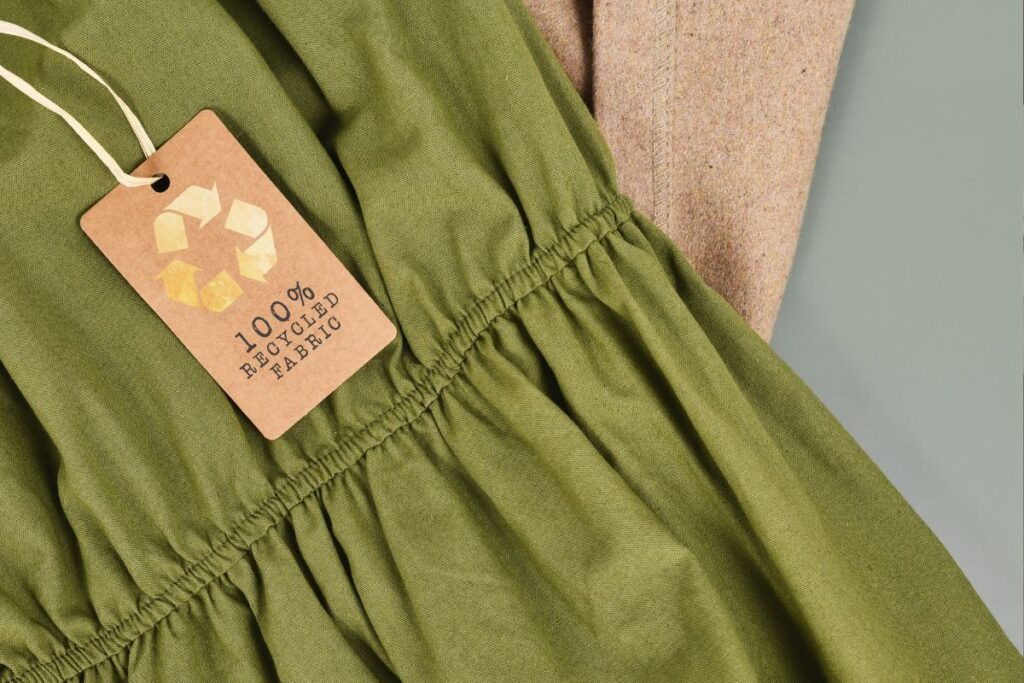
30 seconds summary
● Sustainable and ethical custom clothing, such as polo jersey shirts, offers numerous benefits for businesses and organizations. It helps reduce environmental impact by minimizing waste, carbon emissions, and water consumption while promoting fair labor practices.
● Choosing eco-friendly and ethically produced garments enhances brand reputation, fosters customer loyalty, and boosts employee morale. It also provides long-term cost savings through durability and supports local communities and small businesses.
● Ultimately, adopting sustainable and ethical clothing reflects a commitment to social responsibility, benefiting both your practice and the planet.
In today’s world, sustainability and ethical practices have become focal points across various industries, including fashion. Custom clothing, particularly items like polo jersey shirts, offers a unique opportunity to blend personalization with environmental and ethical responsibility. For professionals, businesses, or organizations looking to reflect their values and make a positive impact, choosing sustainable and ethical custom clothing is not only a smart decision but also a powerful statement. This essay delves into the benefits of sustainable and ethical custom clothing, exploring how it contributes to both environmental conservation and societal well-being, while also benefiting businesses and individual practices in the long run.
Understanding Sustainable and Ethical Custom Clothing
Before diving into the specific benefits, it is crucial to understand what sustainable and ethical custom clothing entails. Sustainable clothing refers to garments that are produced in ways that are environmentally friendly and resource-efficient throughout their life cycle. This includes using renewable resources, minimizing waste, reducing water usage, and ensuring that the production process does not harm the environment. Ethical clothing, on the other hand, focuses on the welfare of workers involved in the garment’s production. It advocates for fair wages, safe working conditions, and respect for workers’ rights. Sustainable and ethical custom clothing combines these principles, creating garments that are not only kind to the planet but also supportive of fair labor practices.
For businesses or organizations in need of uniforms, branded apparel, or any custom clothing, incorporating these values into their practices can significantly enhance their reputation, drive consumer loyalty, and make a difference in the global push toward sustainability.
1. Environmental Benefits
One of the most compelling reasons to choose sustainable custom clothing, including polo jersey shirts, is the positive environmental impact. The fashion industry is one of the largest polluters globally, contributing to massive waste, water depletion, and carbon emissions. By selecting eco-friendly materials and ensuring responsible production practices, businesses can reduce their carbon footprint and promote sustainability.
Reduced Carbon Emissions and Water Consumption: Traditional clothing manufacturing processes often rely on harmful chemicals, unsustainable materials, and massive quantities of water. For instance, conventional cotton farming requires substantial water usage and pesticide applications. In contrast, sustainable fabrics such as organic cotton, hemp, or bamboo are grown using fewer pesticides and less water. Eco-friendly fabric production reduces the carbon emissions associated with manufacturing, as it often employs renewable energy sources and minimizes chemical processing.
Waste Reduction: The fast fashion industry is notorious for creating immense textile waste, much of which ends up in landfills. Sustainable clothing production emphasizes the use of recycled materials, eco-friendly dyes, and waste-reducing techniques. Many companies also offer recycling programs where old garments can be returned and repurposed, further reducing the environmental burden.
By choosing sustainable custom clothing, your practice helps to mitigate the impact of waste and pollution, contributing to the protection of ecosystems and wildlife, and reducing the strain on natural resources. Custom polo jersey shirts made from organic cotton or recycled polyester, for example, can be a part of this broader movement towards sustainable fashion.
2. Social Responsibility and Ethical Labor Practices
Ethical custom clothing ensures that the people involved in creating these garments are treated fairly and work in safe, humane conditions. Ethical fashion has gained widespread attention because of the unethical labor practices that have historically been prevalent in the garment industry, particularly in developing countries. Many fast fashion brands rely on cheap labor, resulting in poor working conditions, low wages, and exploitation.
When businesses and organizations choose ethical custom clothing, they promote the well-being of workers. Ethical clothing brands often ensure fair wages, safe working environments, and respect for workers’ rights. By supporting these brands, your practice plays a direct role in improving the lives of workers and helping to dismantle exploitative systems.
For example, a company that offers custom polo jersey shirts made with fair labor practices ensures that every worker involved in the production of those garments is treated with dignity and respect. The ethical approach can include fair wages, no child labor, safe working conditions, and transparency in the supply chain. Such commitments allow businesses to
differentiate themselves as socially responsible entities.
3. Enhanced Brand Image and Customer Loyalty
In an increasingly conscious marketplace, consumers are more likely to support businesses that align with their values. Choosing sustainable and ethical custom clothing not only allows you to provide your employees with high-quality uniforms or apparel but also enhances your company’s reputation. Consumers, especially millennials and Gen Z, are more likely to support brands that prioritize sustainability and social responsibility.
When a business adopts sustainable and ethical practices, it signals to customers that they are committed to environmental stewardship and social justice. This resonates with consumers who care about the ethical implications of their purchasing decisions. By investing in custom clothing that is both sustainable and ethically produced, your business can build deeper
connections with your audience and foster customer loyalty.
Moreover, employees who wear custom clothing, such as polo jersey shirts, that reflect a company’s commitment to sustainability and ethics may feel more engaged with the company’s values. This increased morale can translate into better productivity and a more positive work culture.
4. Cost Efficiency in the Long Run
At first glance, sustainable and ethical custom clothing might seem more expensive than traditional options. The higher costs often come from the use of premium materials, ethical labor practices, and eco-friendly production methods. However, when viewed in the long term, the investment in sustainable and ethical clothing can save money and resources.
Durability: One of the key advantages of sustainable clothing is its durability. Higher-quality materials tend to last longer, reducing the need for frequent replacements. Custom polo jersey shirts made from organic cotton or other durable materials can withstand wear and tear better than mass-produced, cheaper alternatives. This longevity means that businesses will spend less money replacing garments over time.
Reduced Waste: The sustainable clothing model also reduces waste. Instead of producing large quantities of disposable garments that end up in landfills, sustainable fashion focuses on creating items that can be worn and appreciated for a longer period. Custom clothing that is timeless and durable is an investment in both quality and sustainability.
By making a conscious decision to purchase sustainable and ethical custom clothing, you’re not only supporting the environment and workers but also benefiting from long-term cost savings and fewer disruptions to daily operations.
5. Positive Impact on Employee Well-being
For businesses, employee uniforms or custom clothing can play a significant role in fostering a professional environment and promoting unity. However, when the clothing is made from sustainable and ethical materials, it also has direct benefits for employees’ well-being. Many synthetic fabrics used in traditional clothing are treated with chemicals that can cause skin
irritations or other health issues. By choosing clothing made from organic materials, you reduce the risk of exposure to harmful substances and create a safer, healthier workplace.
Furthermore, when employees are given uniforms or custom clothing that reflects the company’s values, it can increase their sense of pride in the organization. Wearing sustainable and ethically produced garments can reinforce a sense of community and purpose, which can lead to improved job satisfaction and retention.
6. Supporting Local Communities and Small Businesses
Sustainable and ethical custom clothing often involves working with local artisans, small businesses, or local manufacturing facilities that follow ethical labor practices. By supporting these businesses, your practice helps strengthen local economies and provides opportunities for small-scale entrepreneurs and workers.
Many sustainable clothing brands prioritize transparency and community-focused practices, working with local producers to create high-quality garments. Choosing such brands helps to reduce the reliance on large-scale, industrial manufacturers that exploit workers and harm the environment. Supporting ethical fashion is, therefore, an investment in both the global and
local community.
7. Compliance with Corporate Social Responsibility (CSR) Goals
For businesses that have Corporate Social Responsibility (CSR) objectives, incorporating sustainable and ethical custom clothing into their operations can be a concrete way to achieve those goals. CSR is an essential part of corporate governance, focusing on the impact a business has on society. By aligning your company’s clothing choices with sustainable and ethical
practices, you can demonstrate your commitment to a broader social agenda.
Whether it’s through reducing your carbon footprint, improving workers’ rights, or supporting fair trade, your decision to incorporate sustainable and ethical custom clothing into your practice can be a tangible example of your company’s commitment to CSR. Additionally, it can serve as a way to engage employees and customers with your company’s mission and values.
Conclusion
Sustainable and ethical custom clothing offers a wealth of benefits for businesses and individuals. It contributes positively to the environment by reducing waste and carbon emissions, supports fair labor practices, enhances brand image, and provides long-term cost savings. Furthermore, it improves employee well-being, supports local economies, and aligns with corporate social responsibility goals.
For businesses and organizations looking to make a difference while enhancing their practice, sustainable and ethical custom clothing is a forward-thinking choice. Items like custom polo jersey shirts made from organic cotton or other eco-friendly materials not only represent your commitment to sustainability but also reflect your dedication to creating a positive impact on the world.
Incorporating sustainable and ethical clothing into your practice isn’t just about making a fashion statement, it’s about making a statement about who you are, what you stand for, and the kind of world you want to contribute to. By choosing to prioritize sustainable and ethical practices, you are not only investing in the future of your business but also the future of the
planet and its people.
